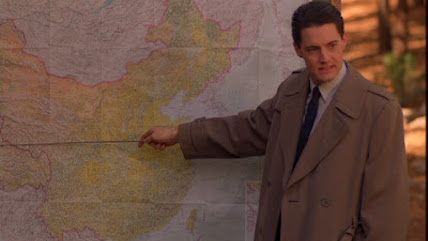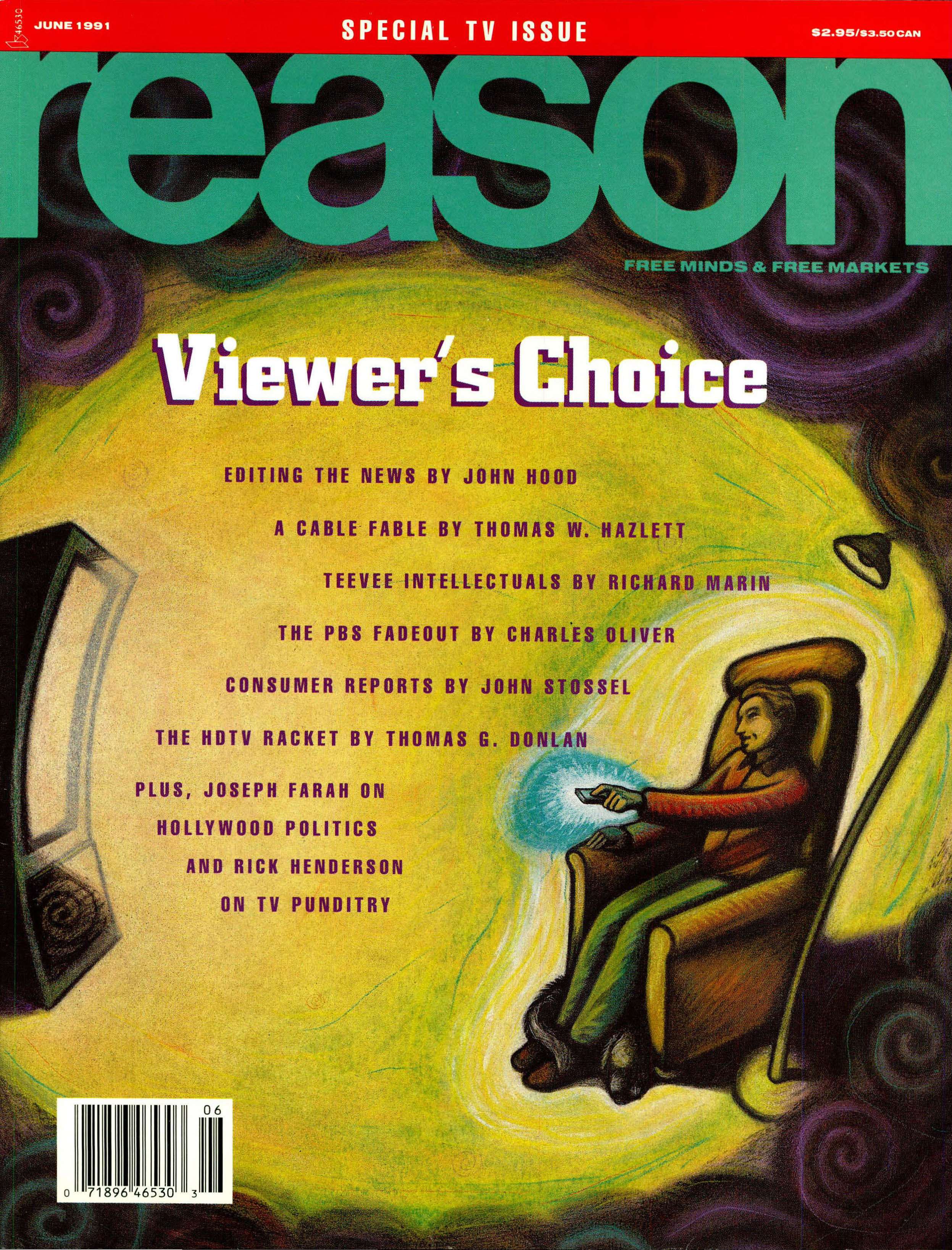Twin Peaks and the Moment TV Changed
Friday A/V Club: How lower entry barriers and greater consumer choice transformed television


When Twin Peaks came back to television this week, the critics agreed on one thing: It was a hell of a lot weirder than the show's first incarnation. That's an impressive accomplishment, given how strange the original series seemed at the time. In May of 1990, just a month after the program debuted, a Time writer marveled that "such a 'difficult' show could achieve prime-time success."
You can give credit for that to cable TV, even though the old Twin Peaks wasn't a cable show. As that same Time piece noted,
when the networks accounted for 90% of TV viewing, a series needed mass-audience numbers to survive. Today, with the networks attracting less than two-thirds of the audience, an 18% or 19% share is a passing grade. A show of limited appeal like Twin Peaks can make it; the art-house audience has become a marketing niche.
In retrospect, that 1989-90 season was full of signs that a new TV era was beginning. The Simpsons became a weekly series, sparking a sometimes wildly creative wave of adult-oriented animation. Seinfeld debuted, bringing with it a style of humor that paved the way for a radically different sort of sitcom. And we were just a couple years away from Homicide: Life on the Street, a direct progenitor of both Oz and The Wire. Television was getting more inventive, and it was getting more inventive because of consumer choice. More choices meant more niches, more risk-taking, more artistic successes, and more entertainingly odd artistic failures. (1990 was the year of Cop Rock too.)
This shift has been an ongoing process, one that began before that season started and is still continuing today. But if I had to pick a single moment that encapsulated the change, it would be a sequence in the third episode of Twin Peaks—the scene where it became firmly clear that David Lynch's show was not merely "quirky" or "unusual" but flat-out weird. An FBI agent investigating a murder brings a crew from the local sheriff's department out to the woods, and there he launches into this spiel:
And then this happens:
I know I'm not the only person who got hooked on the series when I saw that. I suspect that the exact same scene convinced a lot of people never to watch the damn show again. But that's OK. That's how choice and niches work.
My favorite take on the original Twin Peaks, by the way, came from the Seattle-based writer Clark Humphrey. While most critics were calling the show the most surreal thing they'd ever seen on TV, Humphrey kept insisting that this was simply what the Pacific Northwest was like. "Having grown up in a Washington sawmill town," he reiterated recently, "I loved the series as a mostly-realistic portrayal of power and frustration in such a place."
Not having grown up in a Washington sawmill town myself, I can't judge whether he's right. For all I know those spots are just crawling with log ladies and backwards-talking dwarves. Whether Humphrey was right was beside the point: I liked his take because it was eccentric, and that's what such an eccentric program deserved.
(For past editions of the Friday A/V Club, go here.)
Editor's Note: As of February 29, 2024, commenting privileges on reason.com posts are limited to Reason Plus subscribers. Past commenters are grandfathered in for a temporary period. Subscribe here to preserve your ability to comment. Your Reason Plus subscription also gives you an ad-free version of reason.com, along with full access to the digital edition and archives of Reason magazine. We request that comments be civil and on-topic. We do not moderate or assume any responsibility for comments, which are owned by the readers who post them. Comments do not represent the views of reason.com or Reason Foundation. We reserve the right to delete any comment and ban commenters for any reason at any time. Comments may only be edited within 5 minutes of posting. Report abuses.
Please to post comments


The new episodes are even weirder than the old show. It makes some sense, but not enough. I can't stop watching though.
I think the new episodes make a lot of sense. I am loving it. The first 15 minutes of the third episode is some of the craziest shit I have ever watched. Awesome.
Speaking of Twin Peaks, Hillary is back in the news, and she wants all her garmonbozia!
One of these days I'll get around to watching the whole thing of Twin Peaks. I've started several times. And I like David Lynch weirdness. But I've always tried to watch it with people who got ahead of me and given up trying to keep up with them.
It's not easily binged. Especially the back half of season 2. But it's worthwhile
I enjoyed the show back in the day. Haven't given these ones a go yet. End comment.
I got through the first season, and it was pleasantly weird enough. But I figured out by then that they were never going to get around to figuring out who killed Laura Palmer. So I stopped watched.
Maybe they figured it out, maybe the didn't, but if they did it would have been a total non sequitur out of left field. So what would be the point of watching? Weirdness if fine, but weirdness just for the sake of weirdness isn't enough motivation for me to keep watching.
I'm just glad Hawk is still alive.
One of my favorite aspects of Twin Peaks is the amount of actors who appeared on Seinfeld as well.
Also, this scene.
By my reckoning it was a prequel to "The Hidden".
I used to watch Twin Peaks with David Lindelof. His son Damon grew up to make Lost, into which he put a lot from a few conversations he'd had with me. Nothing out-weirds Lost on the very fundamental level of how it related to the audience: pretending to be sci-fi or fantasy, when the audience expected a mystery, but in reality being a non-SF, non-fantasy that really was a mystery the audience could solve, but pretending at the end that there'd been no mystery, and not giving the audience a denouement. Therefore I'm the only one to even come close to a sol'n ? http://users.bestweb.net/~robgood/teach ? but I had an unfair advantage.